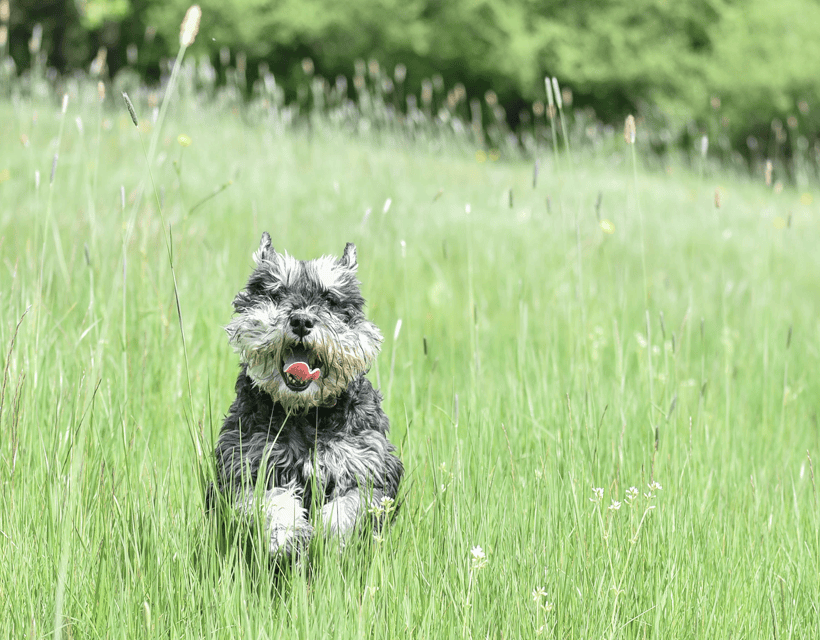
Is Your Dog Suffering from Spring / Summer Allergies
Spring / Summer Allergies: What Pet Owners Should Know

Spring and summer bring a welcome change to our surroundings and lifestyles, but for many dogs, this time of year also means the return of seasonal allergies. Like humans, our pets can suffer from environmental allergens that lead to discomfort and persistent symptoms. Understanding the signs, causes, and treatments of these allergies can help you keep your pet feeling their best.
Understanding Spring and Summer Allergies in Pets
Allergies dogs are typically triggered by substances in the environment, like pollen from trees, grasses, and weeds, dust mites in the home, and even mould spores both indoors and out. When sensitive pets are exposed to these allergens, their immune systems can overreact, leading to a range of symptoms that can affect the skin, respiratory system, and even digestion.
While some pets may only show mild signs, others may experience significant discomfort. Recognising the symptoms early and working with your vet on a treatment plan is key to managing seasonal allergies effectively.

Common Symptoms of Spring and Summer Allergies in Pets
Itchy Skin
One of the most noticeable signs of allergies in pets is persistent itching. Your dog may scratch, bite, or lick themselves excessively, especially around the paws, face, ears, and belly. This behaviour can sometimes be mistaken for boredom or anxiety, but it's often a sign of irritation caused by allergens.
Red, Inflamed, or Infected Skin
Allergic reactions can lead to red, swollen, or irritated skin. In more severe cases, pets may develop “hot spots” or areas of skin that become infected due to constant scratching and licking. Hair loss may also occur in these areas.
Excessive Shedding
While shedding is normal in spring and summer, a sudden increase or patchy hair loss can be a sign that your pet’s skin is irritated by allergens.
Respiratory Signs
Sneezing, coughing, a runny nose, watery eyes, or even ear infections can also occur.
Compulsive Paw Licking
Dogs, in particular, may focus on their paws, licking or chewing them obsessively as a response to skin irritation or discomfort caused by allergens.

How Are Pet Allergies Treated?
Many pets experience relief through a combination of treatments tailored to their symptoms and specific triggers.
Medications
Your vet may advise antihistamines, steroids, or other drugs to treat the symptoms, depending on how severe the allergic symptoms are.
Allergy vaccine
In some cases, your vet may recommend allergy vaccines, also known as immunotherapy. These vaccines contain small amounts of the allergen and are given over time to desensitise your pet’s immune system.
Bathing
Regular bathing can help remove allergens from your pet’s skin and coat. Use a pet-specific shampoo that is gentle on their skin and coat.
Diet
In some cases, a change in diet can help alleviate allergy symptoms. Your vet may recommend a hypoallergenic diet that is free of common allergens.

Be Pollen-Savvy
Monitor pollen forecasts: apps and websites provide daily pollen levels - use these to adjust outdoor activities.
Limit outdoor time on high-pollen days: if pollen levels are high, consider keeping your pet indoors during peak hours (usually early morning and late afternoon).
Clean indoors regularly: hoover carpets, wash pet bedding often, and clean surfaces to reduce indoor allergen buildup.
Use air purifiers: a HEPA air purifier can help filter out airborne allergens, making the indoor environment more comfortable for your pet.


Patience and Persistence: The Key to Long-Term Allergy Management
Seasonal allergies in pets can be frustrating - but they can be managed. It may take time to find the right combination of treatments, and consistency is key. Stay in close communication with your veterinarian, be proactive with at-home care, and don’t lose hope -most pets experience significant improvement with the right support.
If you suspect your pet is suffering from seasonal allergies, don’t wait. A visit to your vet can help identify the problem and get your pet on the path to relief - so they can enjoy all the joys of spring and summer, itch-free. Book a free consultation with us today.
Read the related article on Atopic Dermatitis
Written by Dr. Mariella Roberts, Veterinary Surgeon, Animal Trust Vets CIC
Published May 2025 | Review date May 2027
This advice is for UK pets only and is not a replacement for seeing a vet

